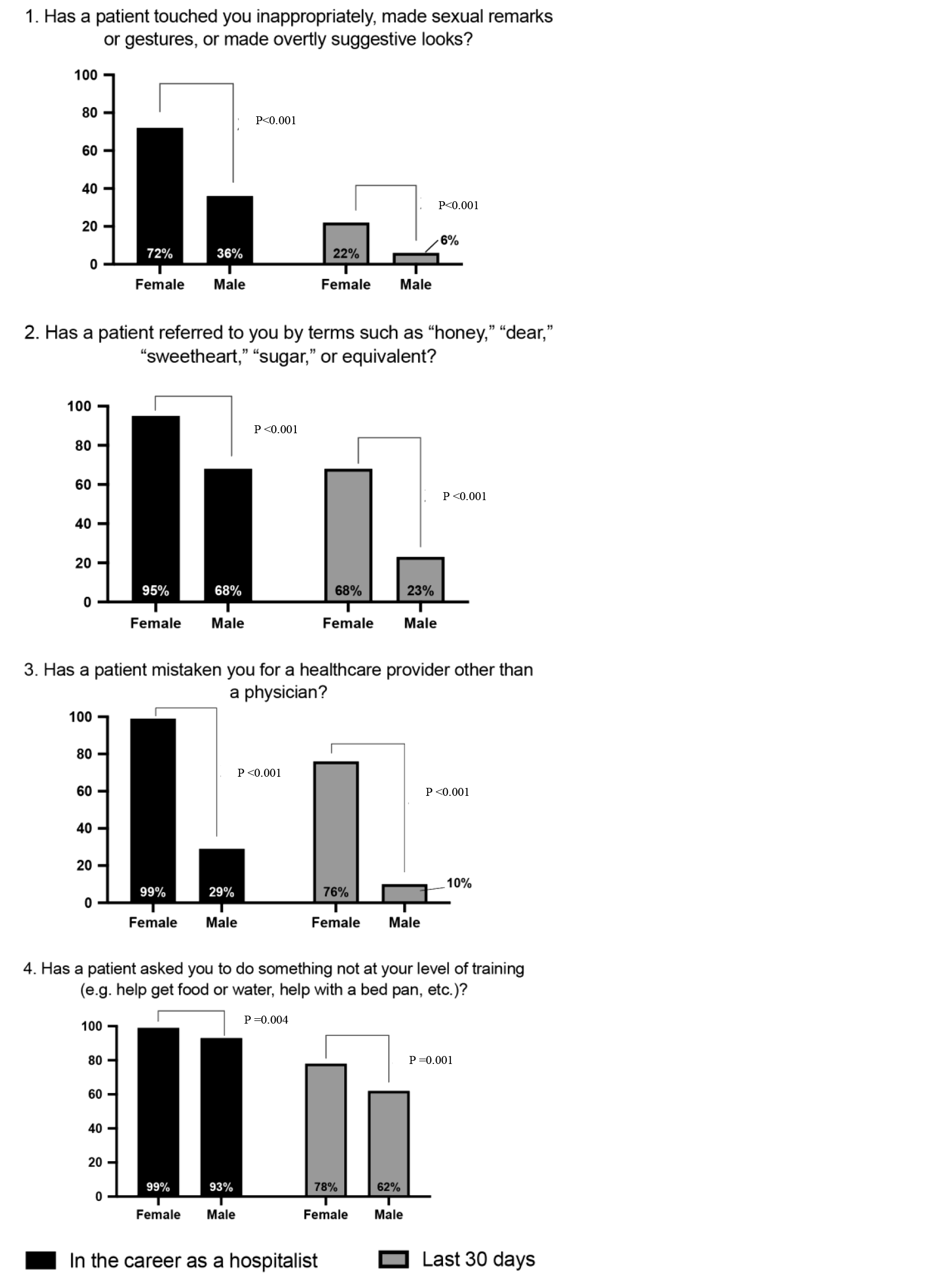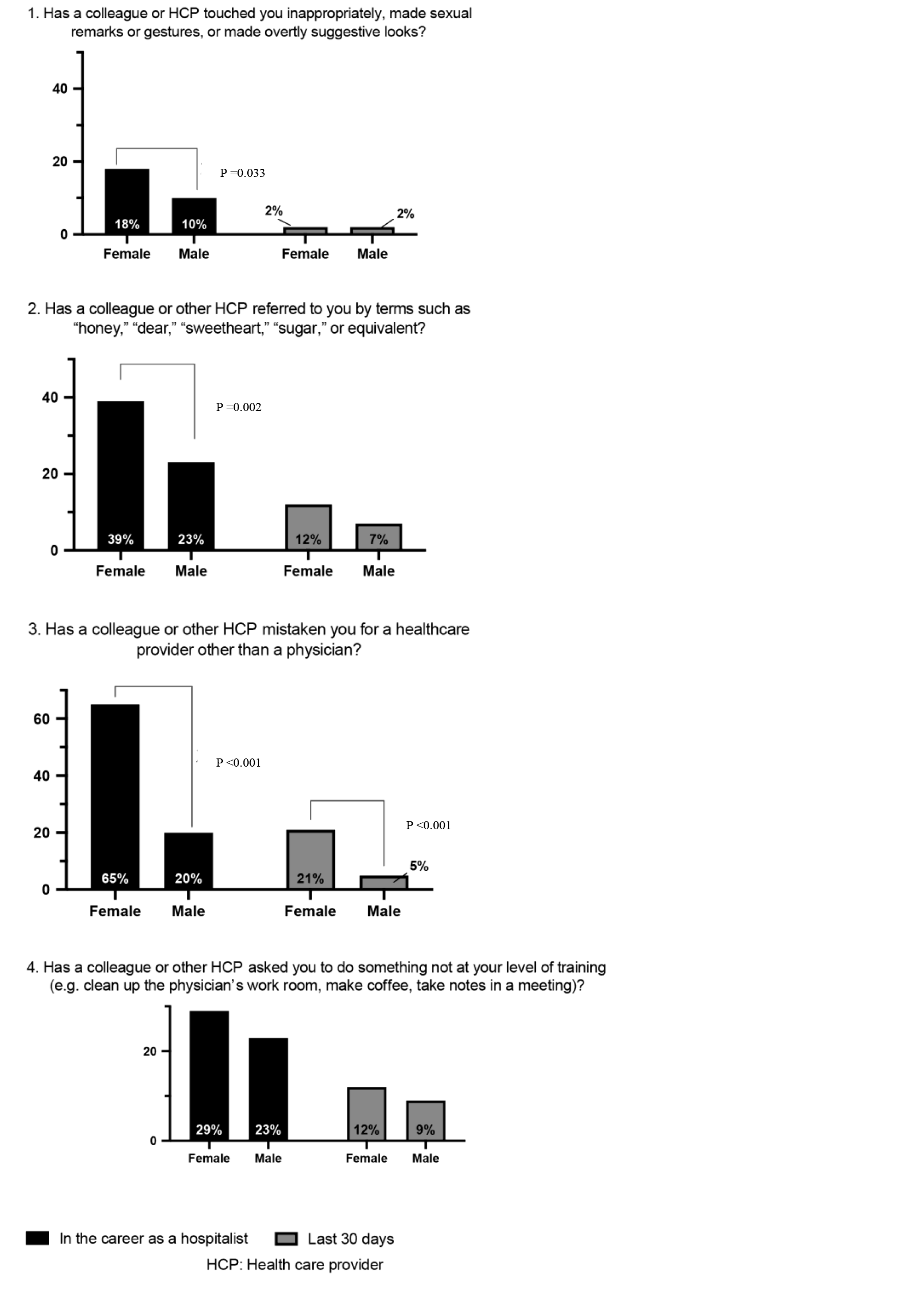Background: Sexual harassment and gender discrimination are common in medical practice. Hospital medicine is a relatively young and evolving specialty and less is known about their prevalence in this field. This study aims to evaluate the experiences of academic hospitalists regarding this topic.
Methods: An anonymous Qualtrics Survey was emailed to hospitalists in the participating academic institutions in the United States. The survey questionnaire aimed to assess hospitalists’ perceptions and experiences about sexual harassment and gender discrimination. Categorical variables were analyzed using Chi-Square test and numerical variables with t-test.
Results: – Eighteen different academic institutions across the US, with total 328 individual responses, participated in the survey. – The majority of the respondents were females (57%), younger (58% of 30-39 yrs age- category), and Caucasian (59%). – More than half of all hospitalists (57%), reported that a patient has touched them inappropriately and made sexual remarks/gestures/suggestive looks in their career, more so among females (72% of females vs. 36% of males, p<0.001), whereas 15% said they have had such experience in the last 30 days (36% of females vs. 6% of males, p<0.001). - The majority of hospitalists (84%) reported that patient has referred to them by terms such as honey, dear, sweetheart, sugar or equivalent in their career as a hospitalist (95% of females vs. 68% of males, p<0.001), whereas 48% said they have had such experience in the last 30 days (68% of females vs. 23% of males, p<0.001).- More than half of hospitalists (69%) felt that they are frequently mistaken for a health care provider other than a physician by their patients in their career as a hospitalist. Females felt so more frequently than males in their career (99% versus 29%, p<0.001) and in the last 30 days (76% versus 10%, p<0.001).- In comparison to their male counterparts, female hospitalists (18% vs. 10%, p=0.03) more frequently reported that a colleague or health care provider (HCP) touched them inappropriately and made sexual remarks/gestures/suggestive looks in their careers. In response to the query whether a colleague or HCP has referred to them by terms such as honey, dear, sweetheart, sugar or equivalent in their career as a hospitalist, 39% of females versus 23% of males responded yes (p=0.002). Similarly, female hospitalists more frequently felt that they are frequently mistaken for HCP other than a physician by their colleagues both in their career as a hospitalist (65% vs. 20%, p<0.001) and in the last 30 days (21% vs. 5%, p<0.001). - When asked to respond to the statement “I feel respected by [patients/colleagues]”, female hospitalists self-reported lower rankings regarding patients (mean score on Likert-scale of 3.73 vs. 4.04, p<0.001) and other physicians (3.84 vs. 4.15, p<0.001). Women were also more likely to report that gender has more negatively impacted their opportunities for career advancement (2.73 versus 3.34, p<0.001) as compared to their male counterparts.
Conclusions: This survey demonstrates that sexual harassment and discrimination, both in the recent and more distant past, are commonly experienced among academic hospitalists. These behaviors are common in both male and female hospitalists, although statistically more frequently in females, both in their interactions with patients and colleagues. This study helps us comprehend the magnitude of this problem among academic hospitalists and highlights the need for interventions.


